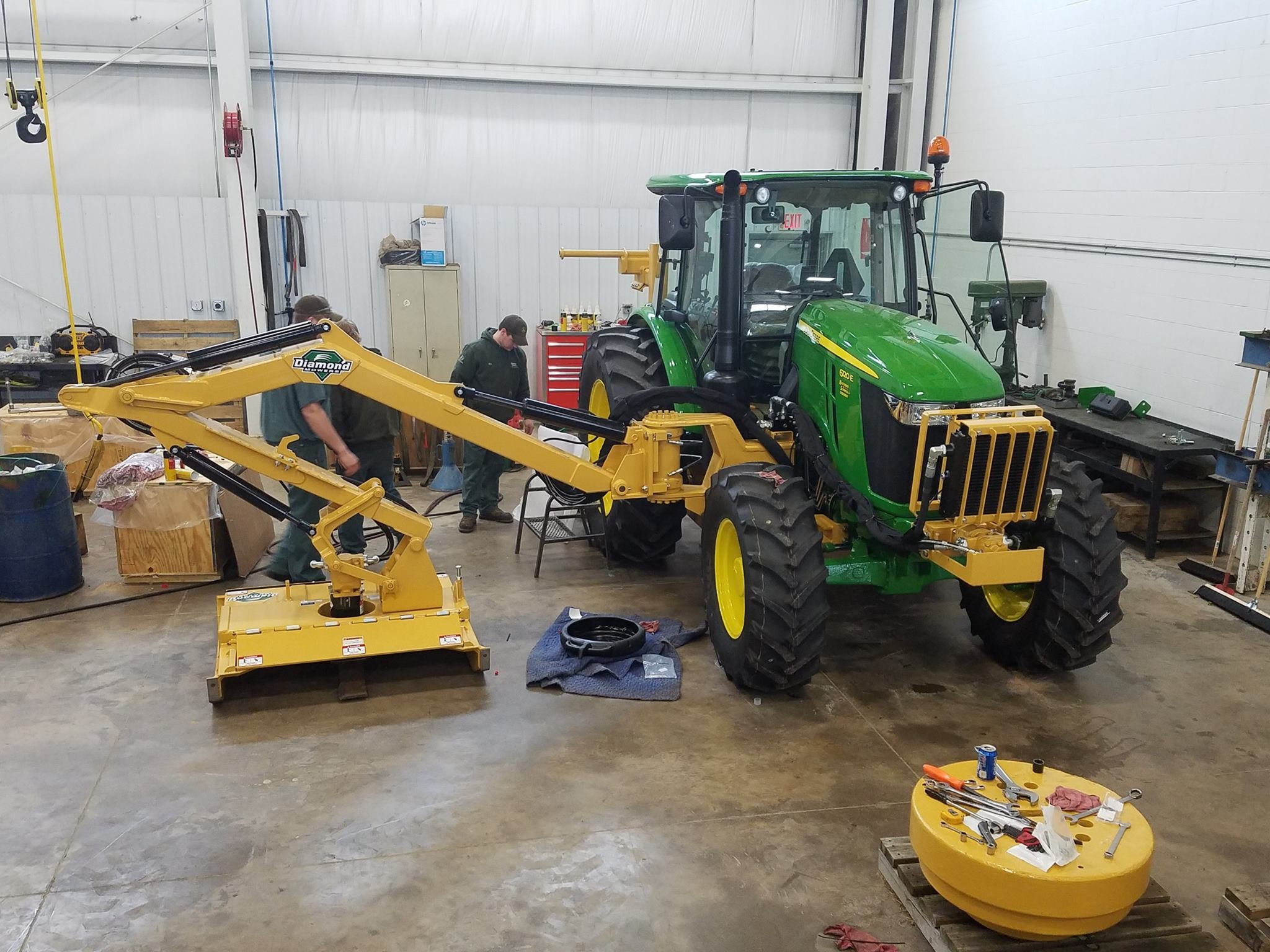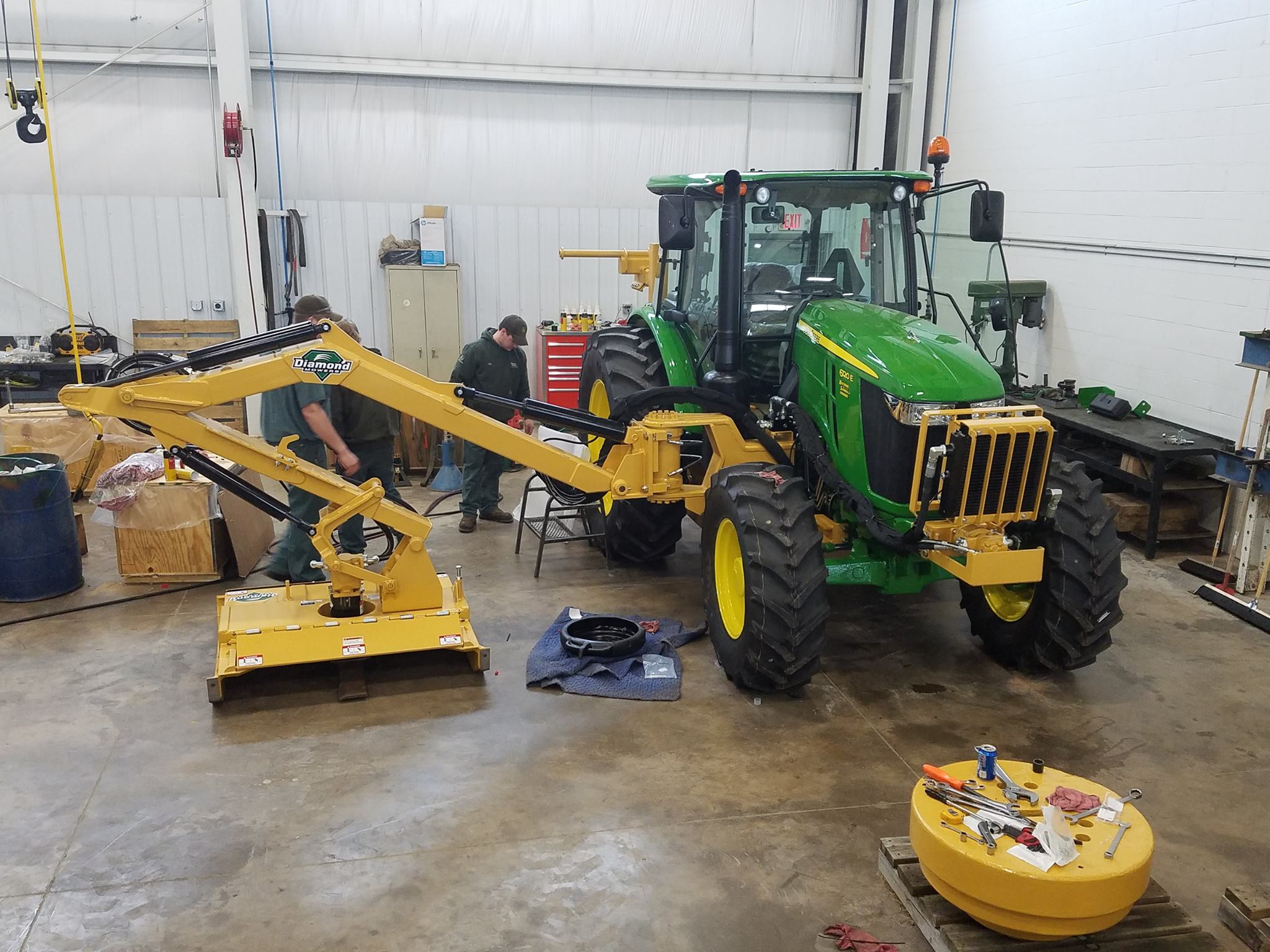
“An ounce of prevention is worth a pound of cure”. Following these 8 simple steps will keep your tractor’s repair costs down and keep your profit margins up.
8 Simple Tips To Keep Your Tractor Running Smoothly
- Fuel Tank – If the tank has leftover fuel inside it from the winter months in storage, consider draining it and refilling the tank with fresh fuel. This will minimize the risk of condensation buildup and lead to a smoother running engine with easier startups. Fuel should always be fresh – no more than 3 months in storage.
- Fluid Levels – Check all fluid levels (engine oil, radiator, hydraulic oil, windshield wiper fluid, etc.) and top them off or replace them as needed. Excessive moisture buildup in these fluids can result in poor lubrication, rough/noisy shifting, and poor hydraulic response. Consider asking your dealer or servicing agency to do a fluids analysis – signs of wear and impending failures can often be detected by a fluids analysis. Fluid loss is also an indicator of leaks and needed repairs.
Check your radiator anti-freeze to water ratio; it’s important for preventing boil over and freezing.
- Battery – Batteries can slowly discharge over an extended period of time when the tractor has been idle or in storage. Most batteries are sealed, but if the battery has caps for adding water, make sure the water levels are at the recommended levels (use only distilled pure water).
Charge the battery with a high-powered charger, or better yet, make sure the battery is on a battery tender during its storage time, which will keep the charge at its peak, prevent freezing of the battery, and generally prolong its overall lifespan.
Clean and inspect all battery connections, and make sure they are tight. Dirty connections drain the battery, and loose and/or dirty connections result in poor battery performance.
Proper battery performance also reduces stress on the alternator, which is designed to maintain a batteries charge, not to recharge a dead battery.
- Belts – Examine your tractor’s belts for wear and cracking, abrasion, rotting, slipping, and malfunction. Drive belts power your radiator fan, water pumps, alternators, hydraulic pumps, etc. In most cases, these belts can easily be replaced by the operator/owner without requiring a visit to your local dealer. Replacing these belts before they are extremely worn will save you from catastrophic failures out in the field.
While you are examining the belts, make sure the radiator and condenser fins are clear of dirt and debris as well. Take care not to bend or damage the delicate cooling fins of these components.
- Greasing – Grease all grease zerks and recommended grease points for your tractor. Check for clogged grease zerks, and lack of grease on moving parts and joints. Lack of lubrication for these parts and joints is a major contributor to accelerated wear and premature failure of components.
- Tires – Check tires for proper inflation and correct as needed. Pay attention to changing weather and temperature fluctuations – for every 10oF change in temperature, there can be a loss or gain of 1psi of air pressure. Proper tire pressures save on fuel costs, tire maintenance, etc. Excessively low tire pressures will dramatically increase tread wear and the chances of a catastrophic failure. Adjusting your tire pressure for the conditions will help as well (a couple of pounds increase for road use, a couple of pounds less for field or dirt use, etc.)
Inspect your tires for cracks, cuts, and gouges in the rubber. If there is any significant wear, replace the tire immediatley, instead of waiting for a catastrophic failure. Prolonged exposure to the environment, UV light from the sun, etc., will exacerbate the wear and tear on your tires.
- Filters – Check filters and replace them as needed; in most cases, it is recommended to replace the filter as opposed to blowing out the filter with compressed air (i.e.: air filters). Fluid filters should always be replaced and never cleaned and reused. Check hoses and clamps for leakage around these filters and correct as needed. Frequent replacement of these critical filter components is highly recommended.
- Warning Lights and Flashers – Always check your warning lights, flashers, and related safety equipment for proper function. Replace burnt out bulbs, repair broken or worn parts and components, and confirm proper operation before taking your tractor out into the field.
Following these simple steps, along with a dedicated maintenance program, will save you more money in the long haul then neglecting simple maintenance.
To shop for Diamond parts, click here.




